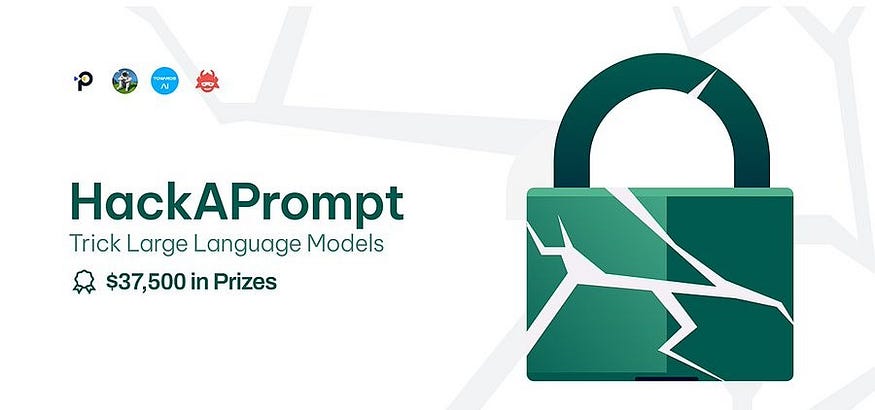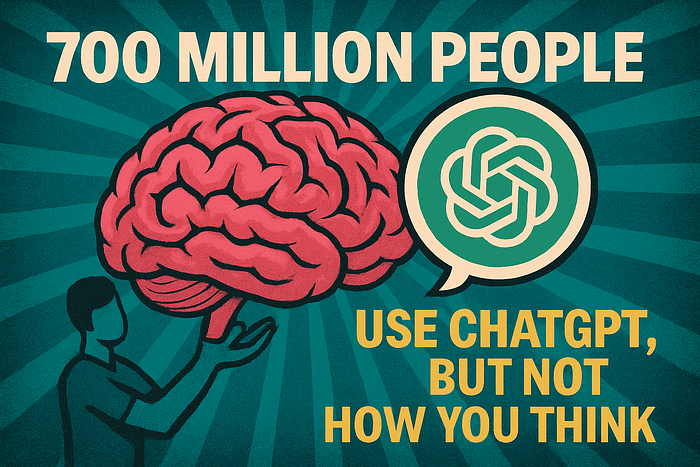
This AI newsletter is all you need #47
Last Updated on July 25, 2023 by Editorial Team
Author(s): Towards AI Editorial Team
Originally published on Towards AI.
What happened this week in AI by Louie
This week AI progress continued down dual paths with significant advancements in open-source models together with developments at companies like Anthropic, Google, and Meta with a rising focus on business-oriented models.
Anthropic’s official release of Claude’s context window extension from 9k to 100k tokens primarily targets its benefit to business applications. This extension allows the model to effectively digest, summarize, and explain complex documents. It enables tasks such as analyzing strategic risks and opportunities, assessing the impact of legislation, identifying patterns across legal documents, comprehending extensive developer documentation, and providing technical answers. Furthermore, it facilitates rapid prototyping and intelligent modification of codebases by leveraging the extended context window.
Google introduced PaLM 2, its latest large language model (LLM), which powers the updated Bard chat tool — a direct competitor to OpenAI’s ChatGPT. PaLM 2 serves as the foundation for various new AI features, including the recently announced “AI snapshots.” These snapshots utilize language models to generate comprehensive summaries, enhancing the search experience. Users have the option to participate in the Search Generative Experience experimental program to benefit from these advancements.
Meta also launched its ImageBind model, which combines text, audio, visual, movement, thermal, and depth data. While currently a research project, it showcases the potential for future AI models to utilize even more multisensory content.
Notably, Meta has predominantly embraced the open-source approach, whereas companies like OpenAI have expressed concerns over open-sourcing, citing potential harm to creators through work replication and potential dangers arising from malicious actors exploiting state-of-the-art AI models.
The HackAPrompt competition by Learn Prompting

HackAPrompt, organized by Learn Prompting and advised by Towards AI, is aimed at enhancing AI safety. In this competition, participants will try to hack as many prompts as possible by injecting, leaking, and defeating the sandwich defence. The competition is designed to be beginner-friendly, welcoming even non-technical people to participate.
The competition runs from May 5th, 6:00 pm to May 26th, 11:59 pm EST
Participate here to win prizes worth over $35,000!
Check the HackAPrompt submission tutorial here.
Hottest News
Google has recently unveiled PaLM 2, its latest large language model (LLM). PaLM 2 will serve as the driving force behind Google’s revamped Bard chat tool and will act as the foundational model for numerous new AI features being introduced by the company. Developers can now access PaLM 2 through Google’s PaLM API, Firebase, and Colab.
2. Meta open-sources multisensory AI model that combines six types of data
Meta has introduced ImageBind, an innovative open-source AI model designed to integrate various data streams such as text, audio, visual data, temperature, and movement readings. However, the model is solely a research project and does not have any immediate consumer or practical applications.
3. Introducing 100K Context Windows: Claude, by Anthropic
Anthropic has extended Claude’s context window from 9K to 100K tokens, which roughly translates to around 75,000 words. This enhancement enables Claude to effectively process, summarize, and provide explanations for dense documents.
4. The AI takeover of Google Search starts now
Google’s latest endeavour involves the introduction of “AI snapshots,” which employ language models to generate comprehensive summaries, enhancing the search experience. Users have the option to participate in the experimental program known as the Search Generative Experience, allowing them to benefit from these advancements.
5. ‘Godfather of AI’ says AI threat is ‘more urgent’ to humanity than climate change
A renowned artificial intelligence pioneer, often referred to as the “Godfather of AI,” has raised concerns about the rapid advancement of AI, stating that it poses a “more urgent” risk to humanity compared to the impacts of climate change. Hinton specifically highlights potential threats such as job displacement and the spread of misinformation but does not support a stoppage of AI development.
Three 5-minute reads/videos to keep you learning
TLDR has introduced a new type of agent executor called Plan-and-Execute. This agent executor distinguishes higher-level planning from short-term execution, enabling efficient handling of complex long-term planning tasks. You can give it a try in Python or JS (JavaScript).
2. AI Will Create More Developers, Not Less
AI has the potential to expedite the growth of developers worldwide by reducing entry barriers through the provision of open-source and closed-source products tailored to diverse audiences. This article provides a rationale for how AI will contribute to the expansion of the developer community.
3. Learnings exploring the GPT/ LLM space
In this article, the author shares key takeaways from interaction with founders, VCs, and employees of tech companies experimenting with LLMs. Some significant learnings include LLMs’ significant business potential, the need for software engineering skills, GPT-4’s top performance with high costs, an anticipated decrease in training expenses, and more.
4. GPT-4’s Maze Navigation: A Deep Dive into ReAct Agent and LLM’s Thoughts
The article examines the application of GPT-4 in maze navigation. It investigates the utilization of memorization-based navigation, labeling, and A* search techniques. However, it notes the limitations of GPT-4 in terms of lacking robust planning skills.
This article offers a comprehensive overview of prompt injection, highlighting its significance as an important issue. It delves into the reasons why many of the proposed solutions may not effectively address the problem.
Papers & Repositories
The paper presents a systematic and comprehensive study on tuning vision-language instruction based on the pre-trained BLIP-2 models. The resulting InstructBLIP models exhibit state-of-the-art zero-shot performance across all 13 held-out datasets, surpassing both BLIP-2 and the larger Flamingo model by a significant margin.
Built with LangChain, GPT4All, and LlamaCpp, PrivateGPT enables users to securely interact with their documents, harnessing the capabilities of GPT while maintaining complete privacy. With no data leaks, PrivateGPT can ingest documents and answer questions without the need for an internet connection.
3. Augmented Large Language Models with Parametric Knowledge Guiding
The paper introduces a novel framework called Parametric Knowledge Guiding (PKG), which enhances Language and Learning Models (LLMs) by incorporating a knowledge-guiding module. This module allows LLMs to access pertinent knowledge during runtime without modifying the underlying model parameters.
4. Active Retrieval Augmented Generation
The paper introduces FLARE (Forward-Looking Active Retrieval augmented generation), a generic method for retrieval-augmented generation. FLARE generates articles or overviews by iteratively utilizing predictions of upcoming sentences to anticipate future content. These predictions are then employed as queries to retrieve relevant documents to regenerate the sentence if it contains low-confidence tokens.
5. Towards Building the Federated GPT: Federated Instruction Tuning
This study presents a new approach called Federated Instruction Tuning (FedIT), which utilizes federated learning (FL) as the learning framework for fine-tuning Language and Learning Models (LLMs) based on instructions. This repository provides a foundational framework for investigating federated fine-tuning of LLMs, incorporating diverse categories of heterogeneous instructions.
Enjoy these papers and news summaries? Get a daily recap in your inbox!
The Learn AI Together Community section!
Weekly AI Podcast
In this week’s episode of the “What’s AI” podcast, Louis Bouchard interviews Logan Kilpatrick, Developer Relations at OpenAI, to demystify terms such as tokens, prompt engineering, alignment, and multimodal models. They shed light on the intricate workings of large language models like GPT-4. Kilpatrick also shares numerous helpful tips for maximizing the usage of OpenAI’s products. The episode highlights many key insights, including the distinction between ChatGPT and GPT-4, AI vocabulary, OpenAI’s interview process, and more. Tune in to the podcast for a deeper understanding of OpenAI and the exciting landscape of AI-powered developer solutions. You can find the podcast on YouTube, Spotify, or Apple Podcasts.
Upcoming Community Events
The Learn AI Together Discord community hosts weekly AI seminars to help the community learn from industry experts, ask questions, and get a deeper insight into the latest research in AI. Join us for free, interactive video sessions hosted live on Discord weekly by attending our upcoming events.
In this seminar, Sander Schulhoff, the Creator of Learn Prompting, will teach you how to master the art of hacking a prompt in the HackAPrompt competition. If you’re unsure about how to approach the competition, Sander will guide you through its workings and show you how it all comes together!
Date & Time: 17th May 6:00 pm EST
2. HackAPrompt Livestream- Come and brainstorm (For $35000)
HackAPrompt is aimed at enhancing AI safety. In this competition, participants will try to hack as many prompts as possible by injecting, leaking, and defeating the sandwich defense. The competition is designed to be beginner-friendly, welcoming even non-technical people to participate.
Date & Time: 22nd May 5:15 pm EST
Add our Google calendar to see all our free AI events!
Meme of the week!

Meme shared by NEON#8052
Featured Community post from the Discord
noahweber#6180 has introduced CloudGPT, which is capable of creating a fully functional, tested, and deployed cloud infrastructure with a single command. This project aims to streamline the process of creating and deploying cloud infrastructure. By describing your problem using natural language, the system will automatically build, test, and deploy a cloud architecture based on your prompt. You can check it out on GitHub and support a fellow community member. Share your questions and feedback in the thread here!
AI poll of the week!

Join the discussion on Discord.
TAI Curated section
Article of the week
Genetic Algorithms and the Knapsack Problem: A Beginners’ Guide by Egor Howell
The article carries out a walkthrough on how to apply the genetic algorithm to a famous combinatorial optimization problem, the knapsack problem. The knapsack problem has many real-life applications such as inventory management, traffic control, and supply chain efficiency. Therefore, it is an important problem and concept that Data Scientists should be aware of.
Our must-read articles
Mastering These 5 Statistics Concepts Will Boost Your Success in Data Science Interviews by Youssef Hosni
Compare and Evaluate Object Detection Models From TorchVision by Abby Morgan
Uncovering the Illusion: A Closer Look at Simpson’s Paradox and Its Implications for Statistical Analysis by Abhishek
If you are interested in publishing with Towards AI, check our guidelines and sign up. We will publish your work to our network if it meets our editorial policies and standards.
Job offers
Senior Software Engineer @H1 (Remote)
Senior Software Engineer, Data @BenchSci (Remote)
Staff Data Engineer @Overjet (Remote)
Senior Software Engineer @ClosedLoop (Remote)
Software Engineer — Applied Team @Unlearn.AI (San Francisco, USA/ Hybrid)
Senior Software Engineer, Machine Learning @Rad AI (Remote)
Interested in sharing a job opportunity here? Contact sponsors@towardsai.net.
If you are preparing your next machine learning interview, don’t hesitate to check out our leading interview preparation website, confetti!

Join thousands of data leaders on the AI newsletter. Join over 80,000 subscribers and keep up to date with the latest developments in AI. From research to projects and ideas. If you are building an AI startup, an AI-related product, or a service, we invite you to consider becoming a sponsor.
Published via Towards AI
Take our 90+ lesson From Beginner to Advanced LLM Developer Certification: From choosing a project to deploying a working product this is the most comprehensive and practical LLM course out there!
Towards AI has published Building LLMs for Production—our 470+ page guide to mastering LLMs with practical projects and expert insights!

Discover Your Dream AI Career at Towards AI Jobs
Towards AI has built a jobs board tailored specifically to Machine Learning and Data Science Jobs and Skills. Our software searches for live AI jobs each hour, labels and categorises them and makes them easily searchable. Explore over 40,000 live jobs today with Towards AI Jobs!
Note: Content contains the views of the contributing authors and not Towards AI.
















